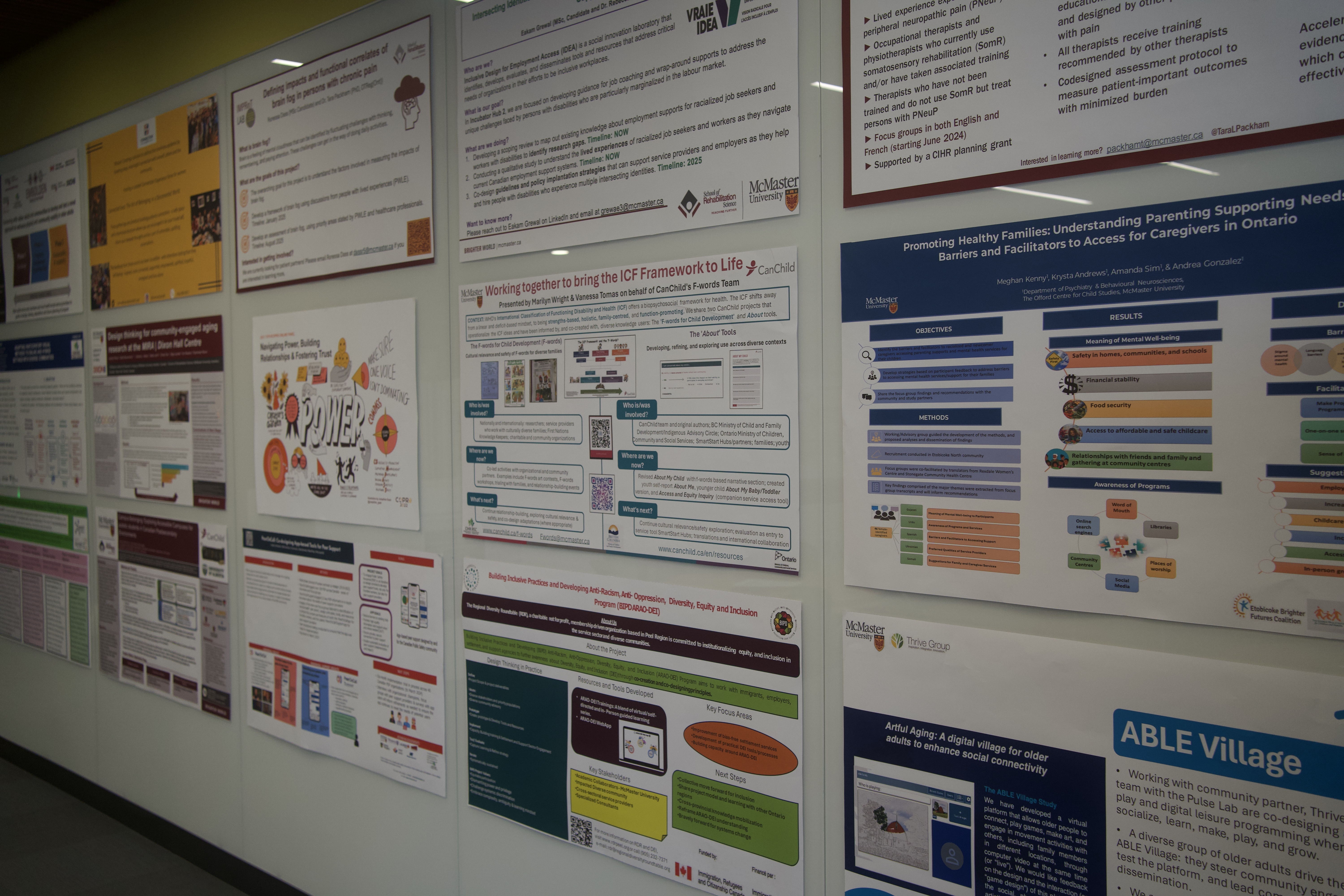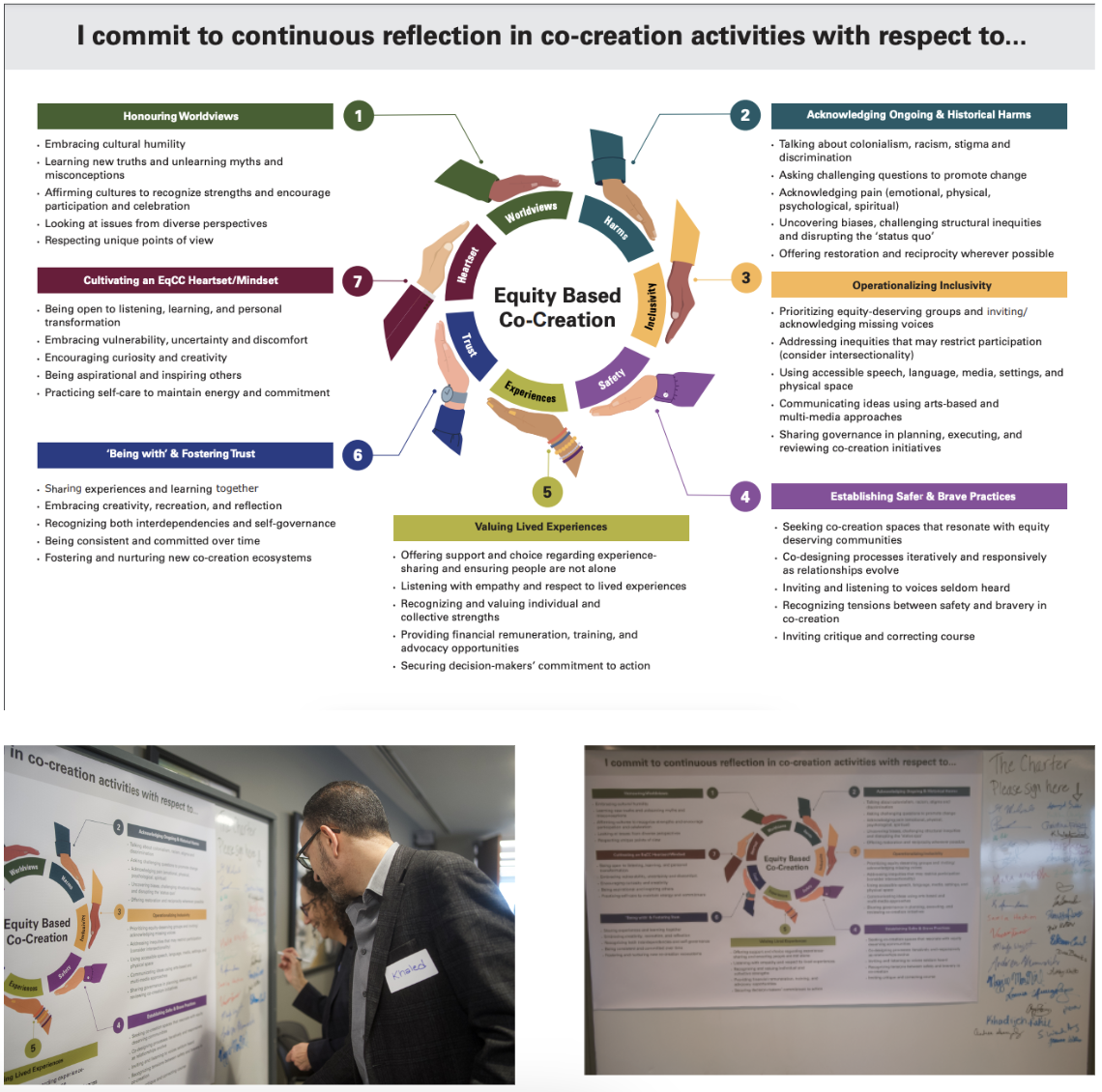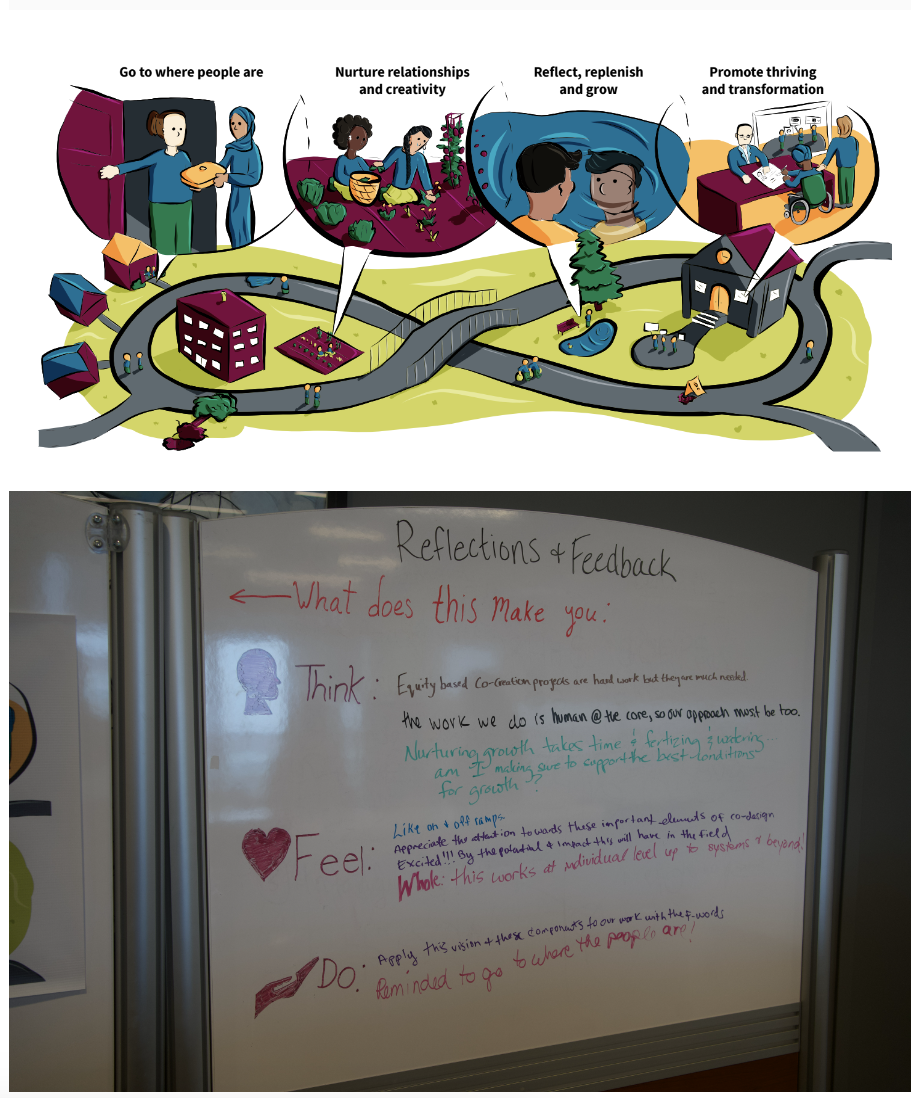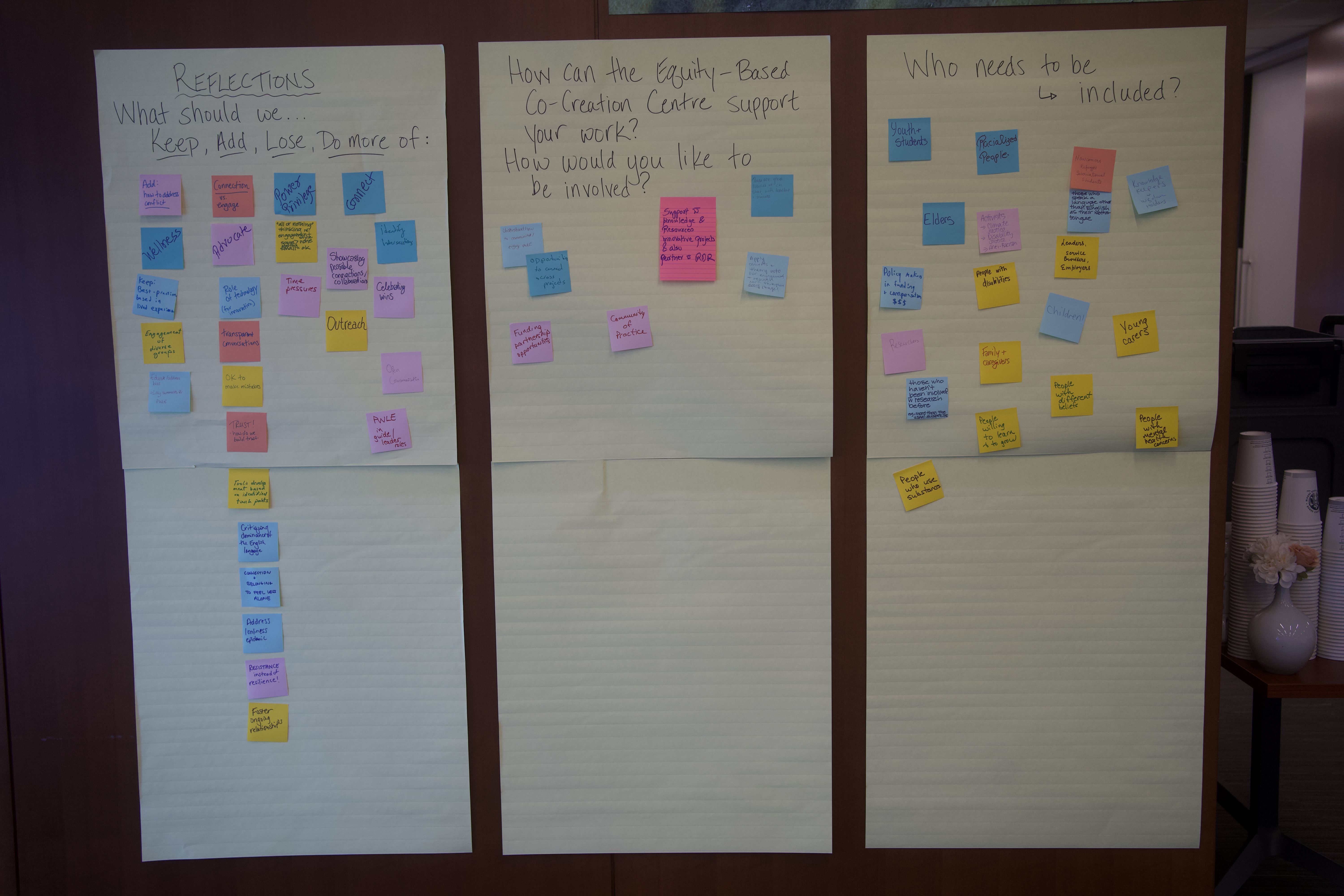Showcased Work
The event included a showcase wall of posters about diverse equity-based co-creation projects. In total, this wall featured 19 posters showcasing projects and initiatives co-created in collaboration with older adults, persons with disabilities, women, children, and racialized communities. These projects explored topics related to health and well-being, loneliness and belonging, anti-racism, anti-oppression and EDI, technology, peer support, employment, education, and more. This work was presented by various community groups and academic institutions and supported by an array of funders.

This work was presented by various community groups and academic institutions and supported by an array of funders:
Azrieli Foundation, Canadian Neurodevelopmental Research Training Platform, Connection Loft, Etobicoke Brighter Futures Coalition, Inclusive Design for Employment Access (IDEA), Offord Centre for Child Studies, Regional Diversity Roundtable, Rexdale Community Health Centre, Rexdale Women’s Centre, Stonegate Community Health Centre, The George Hull Centre for Children and Families, Thrive Group, Trillium Health Partners: Institute for Better Health, Trillium Health Partners: Solutions, YWCA Hamilton
Aging Swallow Research Lab, Brandon University, Carleton University, CIPSRT/ICRTSP, Community and Social Services, DeGroote School of Business, Dixon Hall, Labarge Centre for Mobility and Aging, Marine Institute,
McMaster Collaborative for Health and Aging, McMaster School of Nursing, McMaster University Faculty of Health Sciences, McMaster University School of Rehabilitation Science, Memorial University, Red River College, UC Davis University of California, University of Alberta, University of Calgary, University of Iowa, University of Manitoba, University of Regina, University of Sherbrooke; British Columbia Ministry of Children and Family Development; Ontario Ministry of Children, University of Victoria. Queen’s University, University of Waterloo, Western University, Wilfrid Laurier University, McMaster Institute for Research and Aging (MIRA); CanChild; IMPRinT Lab
Funders: Asper Foundation; Canadian Institutes for Health Research; Public Health Agency of Canada; Immigration, Refugees and Citizenship Canada; Social Science and Humanities Research Council;
Interactive Research Stations
The Charter
From the Showcase, 34 attendees signed the Charter, demonstrating their commitment to continuous reflection in co-creation activities with respect to 1) honoring worldviews, 2) acknowledging ongoing and historical harm, 3) operationalizing inclusivity, 4) establishing safer and brave practices, 5) valuing lived experiences, 6) ‘being with’ and fostering trust, and 7) cultivating an EqCC heart set/mindset. Below are visual representations of the Equity-Based Co-Creation Charter.

To learn more about the Charter, read our published article titled “Co-creating a New Charter for Equitable and Inclusive Co-creation: insights from an international forum of Academic and lived experience experts“. Click below to read.
The Collective Vision
What is the collective vision? Attendees reflected on the Collective Vision for Equity-Based Co-Creation. This vision was co-created at an international forum of people from nine countries with intersecting positionalities. The vision includes an infinity loop pathway at the center connecting four key themes or processes embedded in equity-based co-creation: 1) Go to where people are, 2) Nurture relationships and creativity, 3) Reflect, replenish, and grow, and 4) Promote thriving and transformation.

To read more about the Collective Vision, click below to read our recently published article “Advancing a Collective Vision for equity-based cocreation through prototyping at an international forum.“:
The Theory of Change
We engaged in dozens of conversations to reflect on our dynamic and ever-evolving theory of change. The visualization of our current theory of change represents people at the centre of all our work, and the importance of relationships in the process. The intersecting ovals represent our core strategies designed to work towards our vision of system change: a) to engage a range of key stakeholder partners from service users to policy makers b) to educate and build capacity for people to engage in inclusive co-design c) to promote innovation that moves beyond the status quo d) to evaluate the implementation and impact of inclusive co-design. The arrows represent the dynamic evolving nature of this work and the intersections between the strategies. The three overlapping images depict our proposed growth over time in terms of our sphere of influence, expanding our reach from local to global across a range of diverse stakeholder communities.


We asked attendees to share their thoughts, ideas, and reflections on how we can advance equity-based co-creation and promote transformative change for the health and well-being of all – including our planet.
What we heard. There was a general theme around deepening connection and engagement with people with diverse lived experiences such as people with disabilities and mental health issues, elders and knowledge keepers, youth, families and caregivers, climate and social justice activists, newcomers, and refugees. These connections should take time to build trust and a sense of belonging through transparent conversations and open accessible communication. Some attendees suggested adding strategies for advocacy and resistance over resilience with explicit recognition of intersectional power and privilege.

